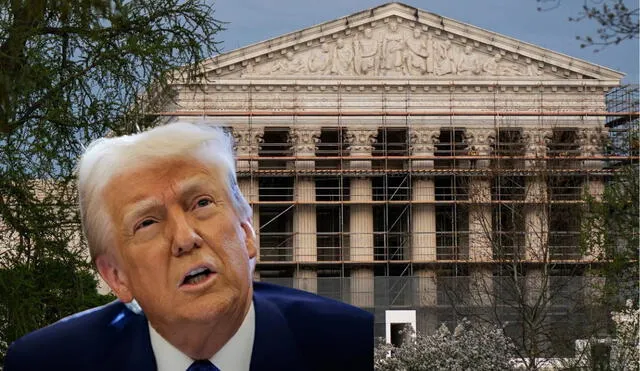Trump's bid to end birthright citizenship heads to Supreme Court
In a case that could reshape the foundation of American citizenship, the Supreme Court is set to decide whether children born in the U.S. to undocumented immigrants should retain birthright citizenship—potentially rewriting over a century of legal precedent and redefining the nation's immigration future.

The U.S. Supreme Court has agreed to hear arguments on May 15, 2025, regarding former President Donald Trump's executive order aimed at limiting birthright citizenship. The order, signed on Trump's first day back in office, directs federal agencies to deny citizenship to children born in the U.S. unless at least one parent is a U.S. citizen or lawful permanent resident. This directive challenges the 14th Amendment’s Citizenship Clause, which has historically guaranteed citizenship to nearly all individuals born on U.S. soil. The case has garnered significant attention, as it could redefine the longstanding interpretation of birthright citizenship in the United States.
Multiple lawsuits have been filed against the executive order, including challenges from 22 Democratic attorneys general, immigrant rights groups, and expectant mothers. These plaintiffs argue that the order violates constitutional rights and disrupts established legal precedents. Federal judges have issued nationwide injunctions blocking the order, labeling it unconstitutional. Despite these rulings, the Supreme Court's decision to hear the case indicates the high stakes involved and the potential for significant legal shifts.
Debate over birthright citizenship: Trump's executive order vs. constitutional precedents
The Trump administration contends that the executive order aligns with the original understanding of the 14th Amendment. They argue that universal birthright citizenship encourages illegal immigration and "birth tourism." Critics, however, maintain that the order is "flagrantly unconstitutional" and undermines the nation's commitment to equal rights under the law. The debate centers on the interpretation of the Citizenship Clause and the extent of executive power in immigration matters.
Historically, the Supreme Court's decision in United States v. Wong Kim Ark (1898) affirmed that children born in the U.S. to non-citizen parents are entitled to citizenship. This precedent has been a cornerstone of American citizenship law for over a century. The current case challenges this interpretation, potentially altering the legal landscape for future generations. Legal scholars and civil rights advocates are closely monitoring the proceedings, recognizing the profound implications of the Court's forthcoming decision.
Supreme Court to decide fate of birthright citizenship and nationwide injunctions in landmark case
The Supreme Court's review will also address the broader issue of nationwide injunctions. The Trump administration argues that such injunctions overreach judicial authority and hinder the implementation of federal policies. Opponents counter that nationwide injunctions are necessary to protect constitutional rights across all states. The Court's ruling on this aspect could influence the balance of power between the judiciary and the executive branch.
As the May 15 hearing approaches, the nation awaits a pivotal decision that could redefine the parameters of citizenship in the United States. The outcome will not only affect those directly impacted by the executive order but also set a precedent for how constitutional rights are interpreted and upheld. The Supreme Court's ruling will have lasting implications for the nation's legal and social fabric.













